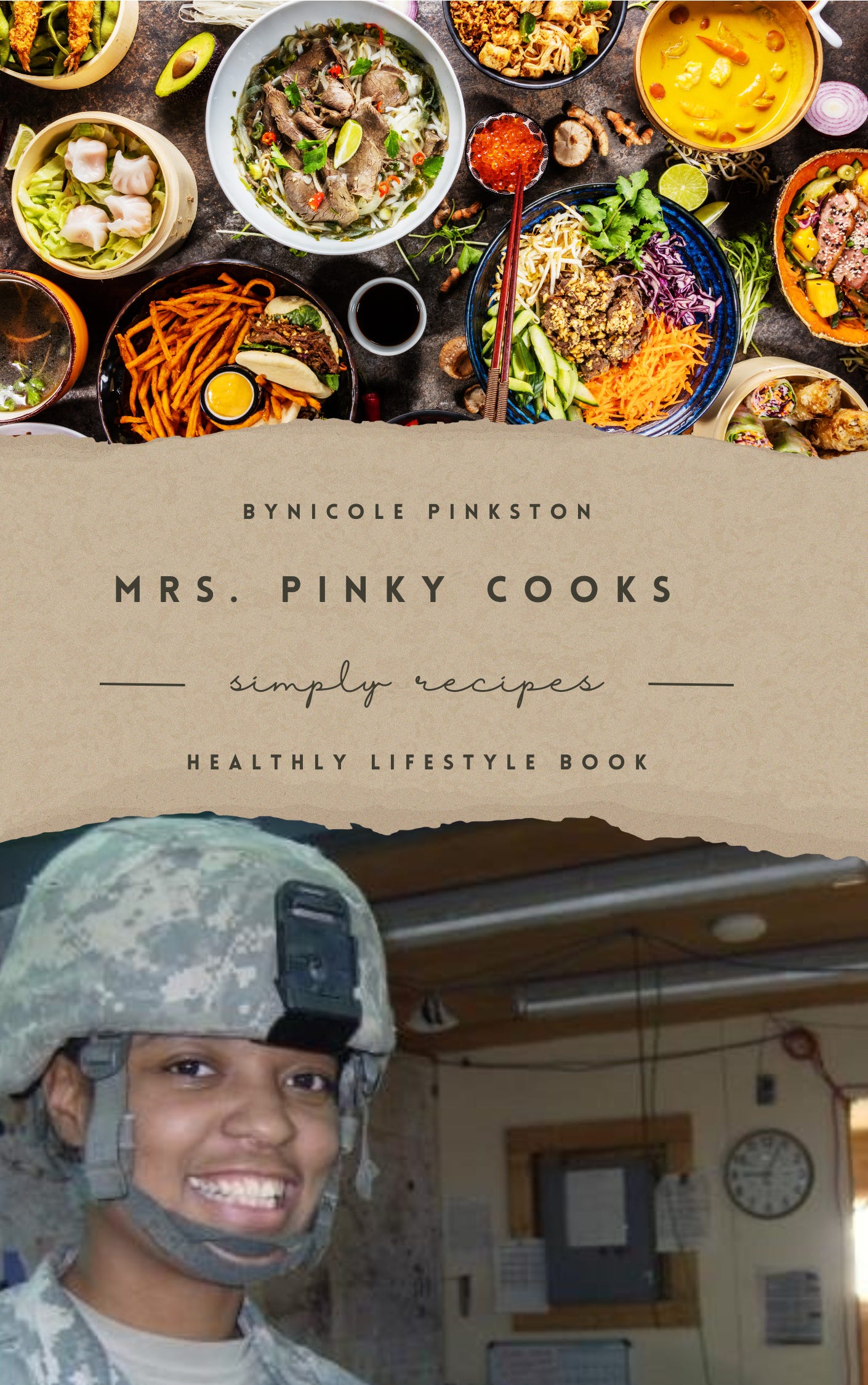Dating with Chronic Illness: Navigating Love and Preparing for Marriage
Iconic Marriages Intentional Dating Series: The Shift Toward Purposeful Connections in 2025 | Iconic Strategies for Finding Meaning and Love
Good Morning, Icons!
Welcome to our Intentional Dating Series. We hope you are warm and doing well, in life, love, marriage and family. Thank God, we all made it to a new year.
We are continuing to pray for California and send our condolences out to the citizens of that state. We will continue monitoring updates. Also, we are praying for those in recovering from the winter storm. Please prepare your families for the rest of the season.
Have you signed up to Iconic Marriages yet? You can below.
Join Us for Free: Most of our newsletters are available at no cost—simply sign up to stay in the loop.
Exclusive Content: For those who wish to support our mission further, consider subscribing for $10 a month or $80 a year. This gives you access to exclusive content, comments, chat features, and eBooks!
Foundational Membership: Cement your status as a foundational Iconic Marriages member with an annual membership at $200. This includes all six of our current books, plus you'll be on the preorder list to receive Book 7, coming in February.
Your support and sponsorship are the driving force behind our continued efforts. We are deeply grateful for your commitment to helping us thrive.
Thank you for being part of our journey.
January Fundraising Goal: $4,200
Dear Icons,
As we kick off the new year, we are excited to announce our January fundraising goal of $4,200, which is part of our larger effort to raise $50,000 in 2025. This month, your contributions will be directed towards some critical areas that will help us achieve our mission of empowering marriages and building strong families across America.
We raise $930 so far. Help us finish our last week.
Allocation of Funds:
$1,200 towards our CCM (Conscious Conservative Movement Ministry and Leadership Academy) training by
Coach Felecia Killings, which is essential for expanding our reach and impact towards federal contracts. My next meeting is this month.
Medical Bills: Supporting ongoing medical expenses as I continue my battle with Crohn's disease like doctors’ appointments, testing and medications.
Free Books to Libraries in Middle Georgia: Providing valuable resources to mothers in our community, helping them build strong and healthy families.
Rewards for Your Support: As a token of our appreciation, we are offering exclusive rewards for our contributors:
A copy of our newly released book, "Mrs. Pinky Cooks": This cookbook shares my culinary journey, from growing up cooking with my mother and grandmother, to feeding my family of 8, and my fellow soldiers in the U.S. Army. It also addresses the challenges of cooking with Crohn's disease, prediabetes, and allergies.
Your support is crucial to our success. Every contribution, no matter the size, makes a significant difference. Together, we can make January a month of progress and positivity as we work towards our 2025 goals.
Thank you for being a part of this incredible journey. Let's make 2025 a year of growth, resilience, and love for families across America.
Dating with Chronic Illness: Navigating Love and Preparing for Marriage
I have had many struggles with my health. I hit my head as a kid and as an adult. I broke my front tooth; I have PTSD and now I struggle with my weight. It has been a up and down roller coaster with my health.
How has this affected my dating life? I had to be honest with my husband.
Dating can be challenging, but when you add a chronic illness into the mix, it can feel even more daunting. However, with the right mindset and strategies, it's possible to build a strong, loving relationship that leads to a successful marriage. This blog post explores how to navigate dating with a chronic illness and manage the journey towards potential marriage.
Understanding the Impact of Chronic Illness on Dating
Chronic illness can affect various aspects of your life, including your dating experiences. It's essential to acknowledge the impact it has on your physical, emotional, and mental well-being. Here are some common challenges faced by individuals with chronic illnesses in the dating world:
Physical Limitations: Chronic illness may limit your ability to engage in certain activities or require you to manage symptoms regularly.
Emotional Strain: Dealing with a chronic illness can be emotionally taxing, leading to feelings of anxiety, depression, or frustration.
Communication Barriers: Discussing your illness with a potential partner can be challenging, especially when it comes to explaining your needs and limitations.
Tips for Dating with a Chronic Illness
Be Honest and Open: Transparency is crucial when dating with a chronic illness. Share your condition with your partner early on to build trust and understanding. Explain how it affects your daily life and what support you may need.
Set Boundaries: Establish clear boundaries to protect your well-being. Communicate your limits and ensure your partner respects them. This includes managing your energy levels and avoiding activities that may exacerbate your symptoms.
Prioritize Self-Care: Taking care of yourself is essential. Prioritize self-care routines that help you manage your illness, such as regular medical appointments, medication, and rest. A supportive partner will understand and encourage your self-care practices.
Focus on Communication: Effective communication is the foundation of any successful relationship. Discuss your feelings, concerns, and needs openly with your partner. Encourage them to ask questions and express their thoughts as well.
Plan for Flexibility: Chronic illness can be unpredictable, so it's important to plan for flexibility in your relationship. Be prepared to adjust plans and activities based on your health. A flexible and understanding partner will adapt to these changes.
Preparing for Marriage with a Chronic Illness
As your relationship progresses towards marriage, it's essential to address the unique challenges that come with chronic illness. Here are some steps to help you prepare for a successful marriage:
Discuss Long-Term Plans: Have open conversations about your future together. Discuss how your chronic illness may impact your long-term plans, such as career goals, family planning, and lifestyle choices.
Create a Support System: Build a strong support system that includes healthcare professionals, family, and friends. Ensure your partner is part of this support network and understands their role in helping you manage your illness.
Financial Planning: Chronic illness can lead to additional medical expenses. Discuss your financial situation and plan for potential costs. Consider creating a budget that accounts for medical bills, treatments, and other related expenses.
Seek Professional Guidance: Consider seeking guidance from a therapist or counselor who specializes in chronic illness and relationships. They can provide valuable insights and strategies to help you navigate the challenges and strengthen your bond.
Embrace Interdependence: A successful marriage involves a balance of independence and interdependence. While it's important to maintain your individuality, it's equally crucial to rely on each other for support and care. Embrace the idea of working together as a team to overcome challenges.
Conclusion
Dating with a chronic illness requires patience, understanding, and effective communication. By being honest, setting boundaries, and prioritizing self-care, you can build a strong foundation for a loving relationship. As you prepare for marriage, focus on open communication, financial planning, and creating a robust support system. Remember, a successful marriage is built on mutual respect, trust, and the willingness to navigate life's challenges together. With the right approach, you can create a fulfilling and lasting partnership despite the obstacles posed by chronic illness.
Introducing "Dating with Purpose" - Your Ultimate Guide to Intentional Love!
Get ready to elevate your love life with our first-ever hardback dating manual, "Dating with Purpose: Iconic Dating Strategies for Finding Love and Meaning" launching just in time for February 2025. This essential volume is designed to guide singles of all ages toward meaningful, intentional relationships that can pave the way to an iconic marriage.
Packed with expert advice, practical tips, and real-life success stories, "Dating with Purpose" helps you navigate the modern dating landscape with confidence and clarity. Learn how to communicate your intentions, prioritize compatibility, and build a strong foundation for a lasting partnership.
Don't miss out on the opportunity to transform your dating journey and move closer to the iconic marriage you've always dreamed of. "Dating with Purpose" is more than just a manual—it's your trusted companion on the path to love. 💖
Grab your copy this February for $25 eBook or $45 print, and start your journey toward intentional, purposeful connections!
Navigating Medical Disabilities in Marriage: Prioritizing Health and Family Readiness
Marriage is a partnership that requires understanding, support, and adaptability, especially when one or both partners have a medical disability. Navigating these challenges while prioritizing health and family readiness is crucial for a successful and fulfilling marriage. Here are some strategies to help couples manage medical disabilities in marriage.
Open and Honest Communication
Effective communication is the foundation of any strong relationship, and it's even more critical when dealing with medical disabilities. Couples should discuss their health conditions openly and honestly, sharing their needs, limitations, and concerns. This transparency helps build trust and ensures that both partners are on the same page.
Example: Jane has a chronic illness that requires regular medical appointments and treatments. She communicates her schedule and needs with her husband, John, so he can provide support and adjust their plans accordingly.
Establishing a Support System
Building a robust support system is essential for managing medical disabilities. This includes healthcare professionals, family members, friends, and support groups. Having a network of people who understand and can provide assistance can alleviate some of the burdens and stress associated with managing a disability.
Example: Mark and Lisa have a child with a disability. They join a local support group for parents in similar situations, where they can share experiences, gain insights, and receive emotional support.
Prioritizing Self-Care
Self-care is vital for both partners in a marriage, especially when dealing with medical disabilities. Ensuring that both individuals take time to care for their physical, emotional, and mental well-being is crucial for maintaining a healthy relationship.
Example: Emily has a disability that affects her mobility. Her husband, Mike, encourages her to engage in activities that promote her well-being, such as physical therapy and relaxation exercises. Mike also takes time for his self-care to ensure he can provide the best support for Emily.
Financial Planning
Medical disabilities can lead to additional expenses, such as medical treatments, medications, and assistive devices. Couples should engage in thorough financial planning to manage these costs effectively. This includes budgeting, exploring insurance options, and seeking financial assistance programs if needed.
Example: Sarah and Tom create a detailed budget that accounts for Sarah's medical expenses. They also research and apply for financial assistance programs to help cover the costs of her treatments.
Adapting the Home Environment
Creating a safe and accessible home environment is essential for individuals with medical disabilities. Couples should assess their living space and make necessary modifications to accommodate their needs. This may include installing ramps, grab bars, or other assistive devices.
Example: Rachel uses a wheelchair, so she and her husband, Chris, modify their home to ensure it is wheelchair accessible. They install ramps, widen doorways, and make adjustments to the bathroom to enhance Rachel's independence and safety.
Planning for Family Readiness
When planning for a family, couples should consider the impact of medical disabilities on their ability to care for children. This includes discussing potential challenges, seeking medical advice, and creating a support plan to ensure they can provide the best care for their family.
Example: Lisa has a genetic condition that may affect her ability to have children. She and her husband, Mark, consult with a genetic counselor to understand the risks and explore their options. They also create a support plan that includes family members and healthcare professionals to assist with childcare.
Embracing Interdependence
Interdependence is the balance between maintaining individuality and relying on each other for support. Couples should strive to create a partnership where both individuals feel valued and supported, while also maintaining their sense of self.
Example: John and Mary both have medical disabilities. They support each other by sharing responsibilities and providing emotional support. They also encourage each other to pursue their interests and hobbies, fostering a sense of independence and fulfillment.
Conclusion
Navigating medical disabilities in marriage requires open communication, a strong support system, prioritizing self-care, financial planning, adapting the home environment, and planning for family readiness. By embracing interdependence and working together as a team, couples can create a healthy, supportive, and fulfilling marriage that prioritizes both health and family readiness. Remember, a successful marriage is built on mutual respect, trust, and the willingness to navigate life's challenges together.
Our Sponsorship Packages: Promote Your Brand with Iconic Marriages in the New Year! 🌟
Hello Icons,
Iconic Marriages is offering Sponsorship packages designed to help you promote your brand, non-profit, personal business, or content creation website. We believe in building strong partnerships and helping our community thrive.
Choose Your Sponsorship Tier
We offer three affordable sponsorship packages to suit your needs:
$25/Month: Get a dedicated spot in one of our newsletters each month.
$50/Month: Secure a featured spot in one of our podcasts each month.
$150/Month: Enjoy recurring promotions tailored to your specific brand.
Talk to us in messenger for what your organizational needs are at this time.
Reach: Connect with our engaged and loyal audience through our newsletters and podcasts.
Visibility: Increase your brand's visibility with strategic placements and mentions.
Community Support: Show your support for a community that values strong relationships and personal growth.
Special Offer for Bulk Orders
Do you know a church, religious organization, or any group that would benefit from bulk book or eCourse orders? Let us know! We offer special rates for bulk purchases, making it easier for organizations to access our valuable resources.
Get Started Today
Interested in becoming a sponsor? Purchase your tier below.
Our Iconic Sponsors: Spotlight
We extend a heartfelt blessing to our Icon sponsors for their monthly contributions and donations to our iconic endeavors. Their support enables us to provide free online newsletters from Monday to Friday, develop new digital products in 2025, and distribute free books to the public each month via Twitter.
Subscribe today to their newsletters and purchase/preorder their newest books.
Greg Bulla of Walter, Whatever will be, will be | Looking at old memories with family and friends. This is a fiction novel that is just the beginning, as Walter, his family, and friends make memories that last Order your copy of Walter, Whatever will be, will be From Amazon.
Sponsors We Say Thank You! Get your name added to our Sponsorship list below when you give monthly and become a subscriber.
Jimmie Doss
Richard Garner
Greg Bulla
Tye
Ez
Arthur









